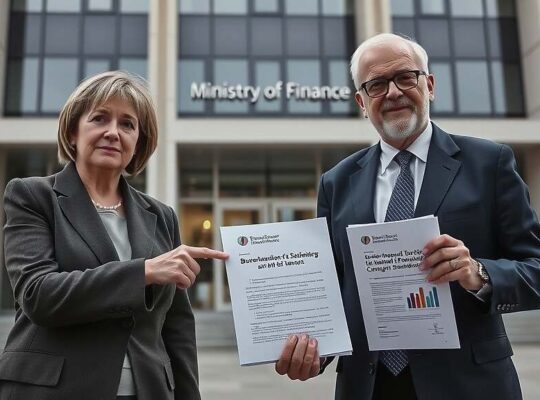Germany faces a growing exodus of corporate functions abroad, prompting concerns about the nation’s industrial base and future economic resilience. New data released by the Federal Statistical Office (Destatis) reveals that approximately 1,300 companies, each employing 50 or more individuals, partially or completely relocated business operations overseas between 2021 and 2023. This represents 2.2% of all German-based companies of that size.
The shift has resulted in a net loss of 50,800 jobs in Germany over the three-year period. While companies reported cutting 71,100 positions as a direct result of the relocation, 20,300 new jobs were created, often stemming from shifts within other corporate functions or as a consequence of realized cost savings. The “production of goods” sector has borne the brunt of this trend, experiencing a net decline of 21,100 roles.
The statistics underscore Germany’s deep integration into global value chains, with 59% of companies employing at least 50 people entangled within these networks, either importing or exporting goods and services. The majority of companies (900) opted for destinations within the European Union for their relocations, while 700 companies chose locations outside the EU.
The primary driver behind these relocations, according to the surveyed companies, is a desire to reduce labor costs (cited by 74%). Strategic decisions from corporate headquarters (62%) and other cost advantages (59%) were also significant motivators. Alarmingly, a substantial 38% of companies cited a lack of skilled labor within Germany as a driving factor, highlighting a weakness in the nation’s training and employment ecosystem.
While companies highlighted various obstacles to relocation, including legal and administrative hurdles, tax concerns and the potential for relocation costs to outweigh benefits, the underlying data paints a more complex picture. The focus on minimizing labor expenses and strategic restructuring raises questions about the long-term implications for Germany’s industrial expertise and its ability to compete on innovation. The exodus further intensifies the debate surrounding Germany’s competitiveness, labor market flexibility and its ability to retain high-value manufacturing and service industries in a rapidly changing global landscape. Political analysts are now scrutinizing whether current government policies are adequately addressing the structural issues fueling this trend, potentially necessitating a re-evaluation of investment incentives, vocational training programs and regulatory frameworks.












